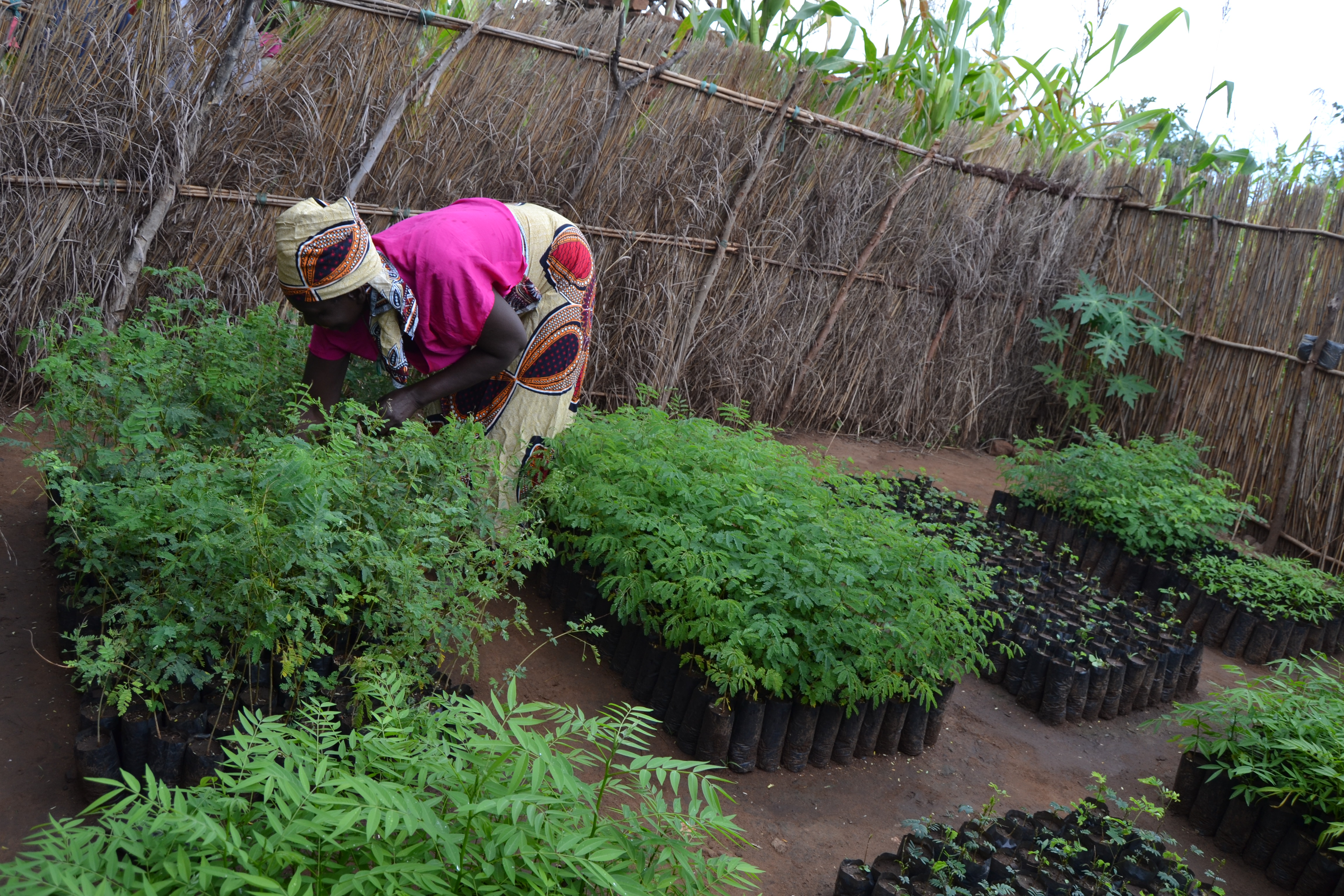Our livelihoods and well-being depend on the environment around us. We rely on Mother Nature not only for the air we breathe and the food we eat, but also for the building blocks of economic growth, from water to generate electricity and irrigate crops to minerals for medicine and industrial production.

Zilani Khonje MCA-Malawi
Annie in her tree nursery in Malawi’s Upper Rivrivi sub-catchment area of the Shire River. She once burned trees to produce charcoal. After learning about sustainable land practices through an MCC-funded program, she now produces and sells tree seedlings.
As part of its mission to reduce poverty and sustain economic growth, MCC works with communities to build resilience to environmental stressors such as climate change, water scarcity, and natural disasters.
April 22 is Earth Day, and to mark the occasion, we share Annie’s story. Thanks to MCC’s investment in Malawi, Annie was able to stop selling charcoal from burning trees and develop a more sustainable source of income selling tree seedlings.
Annie lives in Malawi’s Shire River watershed, where limited economic opportunities and arable land force families to consider unsustainable farming practices. Her story is like that of many of her neighbors.
For 10 years, Annie produced charcoal by burning trees to sell to consumers for cooking. To run her business, she hired young men to cut down trees and prepare them for charcoal production. She knew her work would contribute to deforestation, soil erosion and land degradation, but it was her livelihood.
“When I moved into this area in 1999, I swore I would never cut down any tree for survival,” Annie recalled. “But in 2005, I found myself pressured to do so. I looked at the trees in my field and the natural forest around me, and I got so tempted.”
Annie’s business grew, and before long she produced more than 15 bags of charcoal each month. Burning trees for charcoal is still a common practice across Malawi, where economic opportunities are limited. But the environmental and economic costs are high.
In Malawi, the effect of charcoal production over time has created heavy sedimentation loads in the 250-mile-long Shire River, the most important river in this Southern African nation. The river supports three hydroelectric plants that supply the vast majority of Malawi’s electricity. The river’s vibrant watershed is also a source of drinking water, crop irrigation, transport, and recreation for local communities, most of which rely on farming and the surrounding natural resources for survival.
But high rates of deforestation and river bank cultivation—largely from charcoal production and agriculture—have resulted in serious hillside and river bank erosion, which contributes to heavy sedimentation in the river. The sediment clogs intakes and turbines at the hydroelectric plants, causing regular power outages. Increasing soil and land degradation has also begun to threaten agricultural production and the availability of clean water.
Through its $350.7 million compact with the Government of Malawi, MCC is helping to limit erosion and increase yields by funding technical support and training on sustainable land management and agricultural practices, and establishing an environmental trust to generate long-term financing that promotes better land-use practices among farmers.
The organizations that make up the trust—including sugarcane producers, bottlers, water utilities, and the electric company—are all affected by the region’s environmental challenges. They often have no choice but to use supplemental generators to make up for losses of power, which cuts into their production and profit.
For farmers, new training and skills aim to improve yields. And for trust companies, identifying sustainable funding sources, such as levies on tariffs and contributions from other donors, will reduce pressure on forests and hillsides as their source of water. By linking the land-use interests of downstream organizations with the needs and activities of upstream communities, the project aims to create long-term funding that will sustain livelihoods and protect the environment, even after MCC’s compact has ended.
Farmers who have participated in MCC-supported activities have adopted conservation agricultural practices that are producing enough maize to meet their families’ needs without exacerbating soil erosion—and even provide a surplus of maize to sell at local markets.
MCC’s work in Malawi is also empowering women with opportunities to participate in educational sessions on sustainable agricultural practices and discussions on gender roles, women’s rights, domestic violence, family planning, HIV/AIDS, responsible fatherhood, and the importance of allowing girls to go to school before marriage. The dialogues promote a better understanding of roles, responsibilities, and equitable decision-making about land use and natural resource management.
Most of the charcoal producers in the region are women, who, like Annie, have now abandoned their charcoal businesses and transitioned to growing and selling tree seedlings.
Thanks to the MCC-funded training, Annie said, “I discovered that my charcoal burning and selling was contributing to power cuts. So far, I have planted 155 trees, and I will continue to do so as a way of paying back what I have destroyed.”

